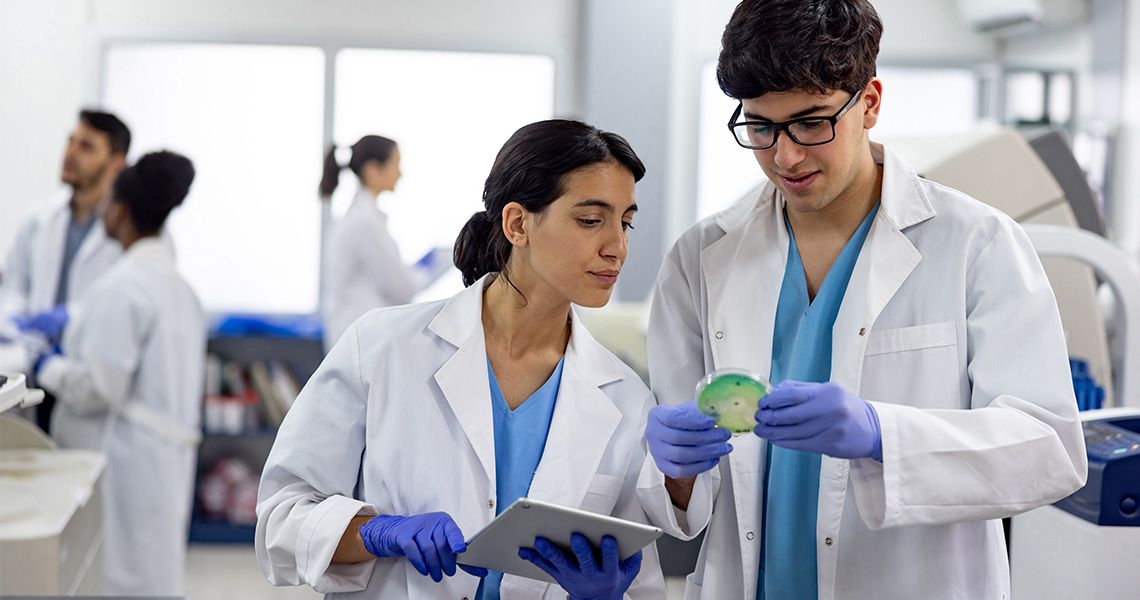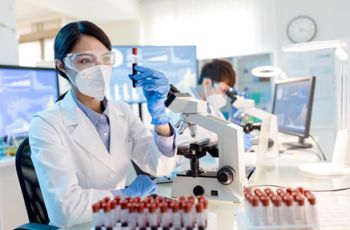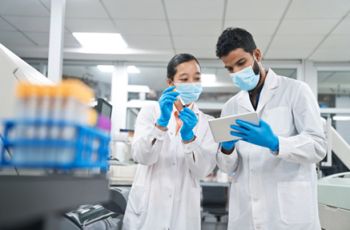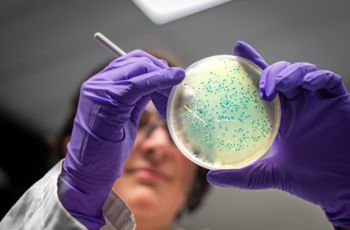Within the intricate web of modern health care, medical laboratory science professionals work diligently behind the scenes, playing a critical role in the diagnostic process. Medical laboratory scientists (MLS) possess an impressive expertise in the meticulous analysis of biological samples, enabling them to uncover vital insights into patient health.
From deciphering blood counts to scrutinizing tissue samples, the duties performed by these skilled technicians are crucial to the process of determining accurate diagnoses and effective treatment. Join us as we take a closer look at the multifaceted responsibilities and essential skills of medical laboratory scientists.
Medical laboratory scientist duties
Medical laboratory scientists perform a wide range of laboratory tests that aid in the diagnosis, treatment and prevention of diseases. Their primary responsibility involves conducting complex analyses on patient samples using varied lab equipment and techniques.
This includes a range of different responsibilities, from examining lab samples to maintaining equipment. Consider the following examples of medical laboratory scientist job duties:
- Performing a variety of laboratory tests on specimens such as blood, cerebrospinal fluid and tissue samples.
- Operating and maintaining complex laboratory equipment to ensure accurate test results.
- Analyzing test results and interpreting findings for health care providers.
- Maintaining detailed records of tests performed, including patient information and quality control measures.
- Adhering to strict safety protocols to prevent contamination and ensure safe handling of hazardous materials.
- Collaborating with health care professionals to facilitate accurate diagnosis and treatment.
- Participating in research projects and contributing to the development of laboratory techniques.
- Engaging in ongoing education and training to stay updated on advancements in the field.
Overall, these professionals play a valuable role in patient care by providing accurate and reliable laboratory test results that contribute to the diagnosis, treatment and monitoring of various medical conditions.
Medical laboratory scientist skills
To successfully perform the duties outlined in the medical laboratory scientist job description above, these professionals must possess a diverse set of skills. Consider the following examples of important MLS competencies:
- Laboratory techniques: Proficiency in a wide range of laboratory procedures is essential, including specimen analysis, microscopy and other diagnostic techniques.
- Attention to detail: Precision is paramount in laboratory work. Technologists must pay meticulous attention to detail to ensure accurate and reliable test results.
- Analytical skills: The ability to analyze complex data and interpret test results is critical to identifying anomalies or irregularities that may require further investigation.
- Problem-solving skills: Technologists encounter challenges in the lab that may require quick and effective problem-solving. They must be adept at troubleshooting equipment issues and resolving unexpected obstacles in the testing process.
- Communication skills: Clear communication is crucial when it comes to conveying test results accurately to healthcare providers. These professionals must also be able to collaborate effectively within the greater healthcare team.
- Time management: Efficiently managing time is important, especially when handling multiple tests simultaneously. Handling samples, meeting deadlines and maintaining a timely workflow is essential in a busy laboratory setting.
- Adaptability: The field of medical laboratory science is dynamic, with new technologies and methodologies emerging regularly. These professionals need to adapt to changes and continue learning throughout their careers.
- Ethical standards: Medical laboratory scientists must adhere to high ethical standards, maintaining the confidentiality of patient information and ensuring the integrity of laboratory results.
The work performed by medical laboratory scientists has a profound impact on the delivery of health care, and the assortment of skills listed above can help ensure high-quality, informed decision-making.
Become a medical laboratory scientist
Serving as the backbone of diagnostic medicine, medical laboratory scientists stand at the intersection of technology and patient care, ensuring the accuracy and reliability of important laboratory test results. With a keen eye for detail, a dedication to precision and a commitment to ongoing learning, these professionals contribute significantly to the effective diagnosis, treatment and prevention of diseases.
The skill set required for success in this career path is unique, which is why those interested in medical laboratory science careers should seek out high-quality bachelor’s, master’s or post-baccalaureate certificate programs in the field.
To learn more about the path to pursuing an MLS career, visit our article “How to Become a Medical Laboratory Scientist."



